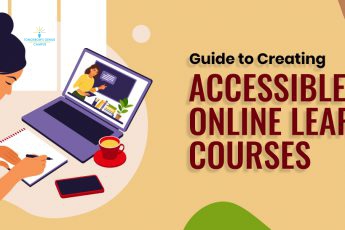Examine the NEET 2022 Medical Entrance Exam’s Subject-Wise Syllabus
The National Testing Agency’s (NTA) prestigious exam National Eligibility cum Entrance Test (NEET), for admission to the MBBS, BDS, and AYUSH courses in the country’s medical institutes, is scheduled to be held on July 17. The last date for submission of the application is May 6 and with the upper age limit no longer existing the number of applicants is expected to rise greatly. NEET tests a medical aspirant rigorously and thoroughly. Hence, it is extremely important to understand and get your NEET exam course right. Here, we give you an insight into the syllabus of each subject and further break it down according to its importance. This will aid in understanding and studying each subject based on its important chapters and topics.
What does NEET comprise?
The syllabus for the exam itself is collated from across various boards i.e., the state boards, CBSE (Central Board of Secondary Education), COBSE (Council Board of School Education), and the National Council of Education Research and Training (NCERT). It also includes recommendations from the Medical Council of India (MCI). It covers the syllabus of classes 11 and 12 of the subjects mentioned above. Therefore, the NEET exam course is an extensive and in-depth one.
With 97 chapters in total, NEET assesses you in four subjects:
- Physics
- Chemistry
- Botany
- Zoology
Previously 180 minutes, this year, the duration of the exam has been increased to 200 minutes. Also, the total number of questions will be 200, of which you must attempt 180. The maximum number of marks will be the same, i.e., 720. Each correct answer will garner you 4 marks while a wrong one deducts 1 mark. Moreover, the subjects themselves will be divided into two sections:
- Section A will have 35 questions
- Section B will have 15 questions
You will get an internal choice in Section B, where you must attempt 10 out of the 15 questions. More information can be found on the official website of NTA.
The following table cites the subject-wise break-up of marks:

Source: https://neet.nta.nic.in/
NEET is your gateway to any government, private, or central medical institution across the country as it is uniform in its testing pattern. The exam also ensures that deserving candidates get a fair opportunity in state-funded medical institutes.
A breakup of the syllabus
Here, we give you a class-wise and subject-wise breakup of the NEET exam course.
NEET – The diagram below depicts the subject-wise distribution of questions

Source: NEET official brochure
Physics
Most candidates find Physics the toughest, so let’s cover this subject first to ease your anxiety. You can choose to enroll in a NEET Physics crash course online to brush up on your studies and get proper guidance from tutors as well.
The Physics syllabus this year has topics from Class 11 such as Physical world and measurement, Kinematics, Laws of Motion, Heat, Work and Internal Energy, Gravitation, The Motion of systems of particles and rigid body, Thermodynamics, Properties of Bulk Matter, Oscillations and Waves, Behavior of Perfect Gas and Kinetic Theory.
From Class 12, the focus this year is on Electrostatics, Current Electricity, Electrostatics, Electromagnetic waves, the Dual Nature of Matter and Radiation, Magnetic effects of Current and Magnetism, Optics, Atoms and Nuclei, Electromagnetic Induction and Alternating Currents, and Electronic Devices.
Chemistry
Now Chemistry is the most scoring of the three subjects, hence if you prepare for it thoroughly, you will surely score high marks.
From Class 11, this year, the subject covers topics such as Some Basic Concepts of Chemistry, Organic Chemistry- Some Basic Principles and Techniques, Structure of Atom, Chemical Bonding and Molecular Structure, States of Matter: Gases and Liquids, Thermodynamics, Structure of Atom, Classification of Elements and Periodicity in Properties, Redox Reactions, s-Block Element (Alkali and Alkaline earth metals), Hydrocarbons, Environmental Chemistry.
From Class 12, in Chemistry the NEET syllabus will include topics such as Solid State, Solutions, Chemical Kinetics, Electrochemistry, Surface Chemistry, General Principles and Processes of Isolation of Elements, p-Block elements, d and f Block Elements, Coordination Compounds, Haloalkanes and Haloarenes, Alcohols and Physical and chemical property of primary alcohol Phenols and Ethers, Aldehydes, Ketones and Carboxylic Acids, Biomolecules, Polymers, Chemistry in Everyday Life, and Organic Compounds Containing: Nitrogen, Amines, Cyanides, and Isocyanides.
Biology
Considered to be the easiest of the three subjects, Biology, as mentioned earlier is divided into two sections – Botany and Zoology. If you have clarity of concepts and can explain them well, this subject is a scoring one for you.
This year, the topics included in NEET for Biology from Class 11 are Diversity in Living World, Plant Physiology, Human Physiology, Cell Structure and Function, and Structural Organization in Animals and Plants.
From Class 12, the focus is on these topics – Reproduction, Genetics and Evolution, Biology and Human Welfare, Biotechnology and its applications, Ecology and Environment.
Concentrating on the topics mentioned above from Class 11 and Class 12 for each subject will help you score high marks in NEET.
How do short-term courses help?
You may have chalked out a solid stud plan to ace NEET and have been studying diligently all along with your notes and study material in place. However, it always helps to enroll in a short crash course as a part of your preparation. As the NEET exam course is vast and intensive getting help from experts has its own benefits as these seasoned teachers can guide you in acing the test.
Here are some benefits of taking that short crash course:
- The most important chapter will be revised
- There will be personalized coaching
- All your doubts will be cleared
- Weekly and mock tests will help in your preparation
- Question papers will most likely be modelled on the NEET format
- Self-paced learning in the classes will lessen any anxiety
- Most classes create their own video tutorials based on their own research, which is helpful
- Time guidance is given in these classes as well
- Many classes hold webinars that are useful to understand concepts and clearing doubts
- Most importantly, the study material and the course itself will be accessible online, anytime
NEET being a prestigious and the most important exam, while also being highly competitive, it is important to be thorough with the syllabus. At the same time, the NEET exam course is quite extensive, we recommend that you take up a short crash course that will help you get a high score.














